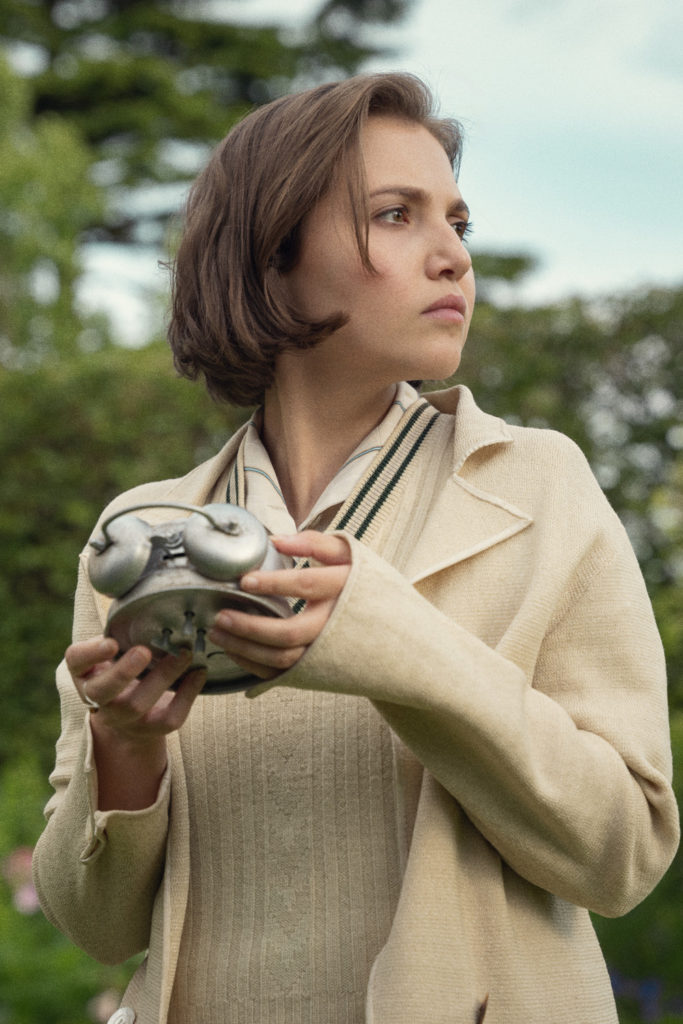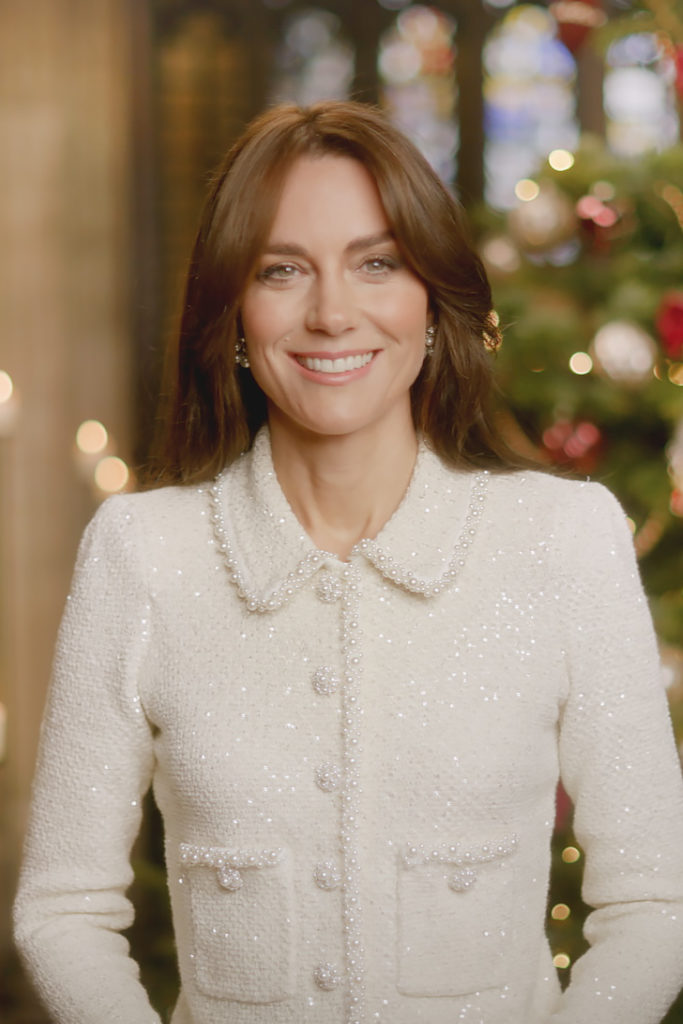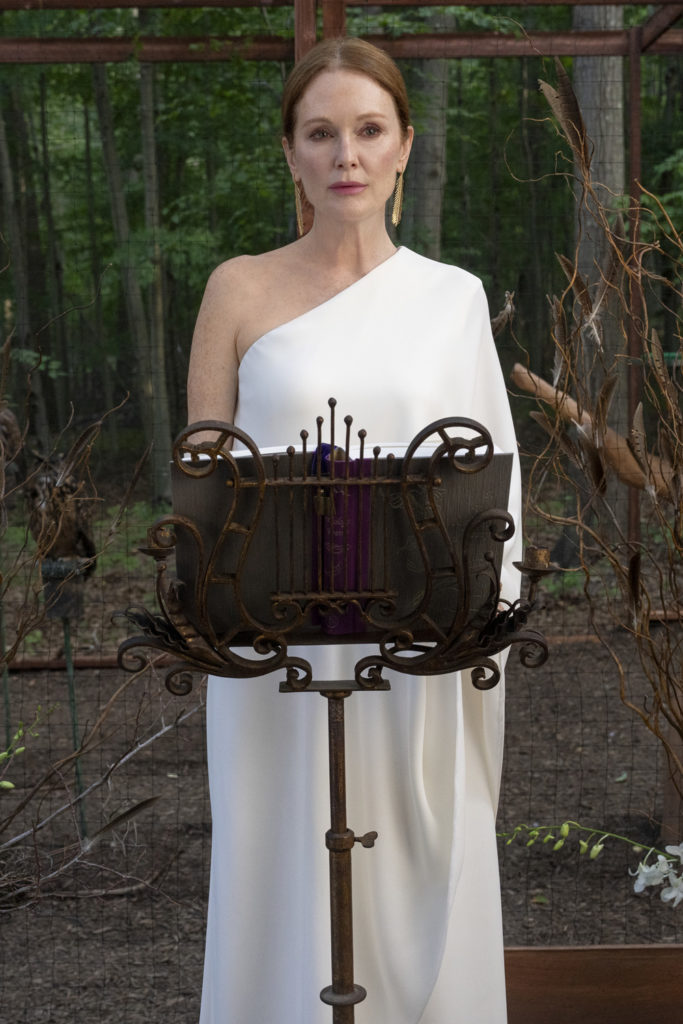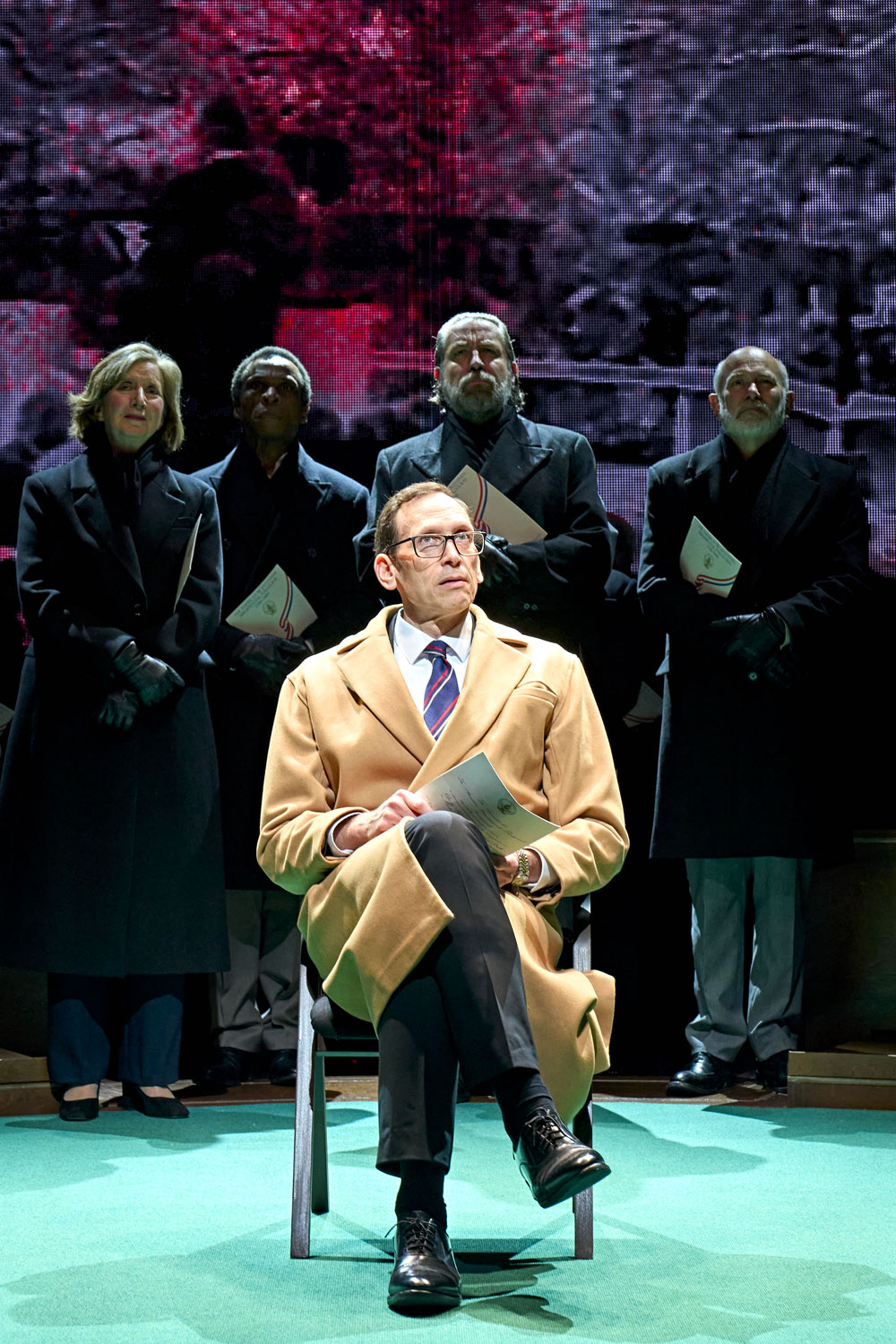
Drill, Baby, Drill: Actor Stephen Kunken On Returning To RSC Show Kyoto And US Politics
By
11 months ago
And how he thinks we need compassion across the political spectrum
The RSC’s Kyoto jettisons you into the UN’s 1997 conference at the advent of the world’s first major climate legislation. Or nearly – if it weren’t for American oil lobbyist, Don Pearlman, who is running down the clock. Stephen Kunken plays Don for the show’s second outing as it transfers from Stratford-Upon-Avon to Soho Place, London.
Interview: Stephen Kunken On Kyoto
Welcome back to Kyoto. How does it feel returning to the show?
It’s fascinating because the world has changed so much since when we last did it. It has a totally different resonance. Despite the fact that the play is an inorganic thing, you know, words on a piece of paper, everything has sort of settled on a much deeper level. It’s had to evolve with the times.
Does it feel more urgent this time round?
Yes, it does. That’s a great word for it. It has shifted from a kind of cautionary tale to a protest piece. There’s a bootstrap sense to it now, too, which is to say that we have to sort of pick ourselves up and figure out who we want to be, and what we want to be.
These issues are complicated especially for an American, because a majority chose to do something [vote for or against Trump] that is very specific. And we can’t just write one half off depending on which side you’re on. You can’t write the other side off. We’re all in this soup together. That’s sort of the point of the play: that we’re sort of stuck on this orb together with very disparate ideas, needs, and concerns, so how do you move this group of people forward? What does it take to find agreement among all of these differing special interests.
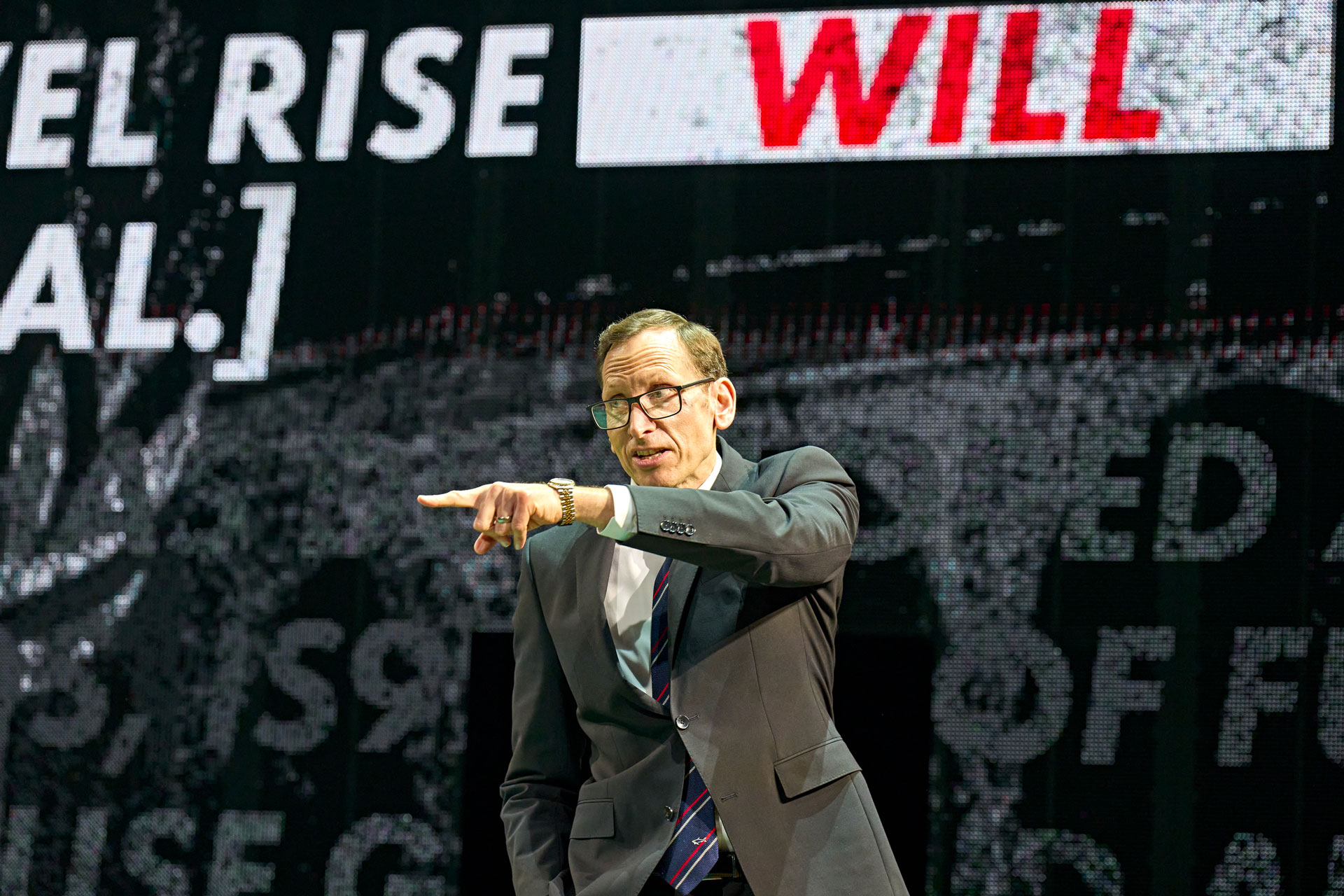
Stephen as oil lobbyist Don Pearlman
Tell us about the play in a nutshell?
I play Don Perlman, a real figure who came up as a politico under Ronald Reagan before becoming a lawyer. He ended up representing the Seven Sisters, which were the oil states, and fighting for their interests during the 1990s. This is a time leading up to the first piece of actual world climate legislation. He was labelled a bad actor by some; others would say he was very versatile, fighting tooth and nail for the principles he believed in.
More context: the world was a different place in the 80s and early 90s. Certain things [about the climate] weren’t known with certainty, politics were different. So the play explores the run up to this climate legislation while lots of people with really different interests tried to figure out what they could do with it.
So, the Kyoto Protocol, which the play concerns, set the first climate emissions targets. Its legacy is a bit troubled, the Paris Agreement later superseded it. Why is it still relevant to audiences today?
It’s sort of like if you’re a parent looking at your kid and you’re saying, ‘why can’t you play soccer yet?’, and the kid has yet to learn to walk. This was the world learning to walk, and it wasn’t perfect. And certain things… You know, the US never ratified the protocol, and it sort of set the stage for issues that just kept getting revisited down the line in each COP since. But it built the lexicon, got the world talking. It took the rock, broke the inertia and got it moving – which is the hardest thing.
You know, just looking at what happened in the last COP – the issues debated here directly relate to the issues they were addressing in Kyoto. I think, by going back to what made [this world agreement] work the first time, I think you get a little bit of insight into what might make it work the next time: which is the commitment to very incremental small steps and places where we can find agreement.
So, preparing for the play must have been very heady, how did you prepare for the role?
On one hand, it was very heady, you have all these names, places, nouns, etc. But we had an incredible team of dramaturgs and the Joes [Murphy and Richardson], who wrote the play, are incredible, they give you so much info. We had a little library that followed the show from Bethnal Green to Stratford. We could check out books. So on this one hand, it was very much about history with sturdy facts.
But on the other hand, the play is about interpersonal relationships and emotions and what drives [these political] interests on a deeper level. I think the play really hangs on the human condition more than it hangs on the political condition. That’s what, I hope, makes the play successful and more than just a good docuseries or something best served by the History Channel.
Nobody really wants to watch a transcript come to life.
I think even the people in the play would say – I certainly have a line on it – that there is nothing as gruelling as a 12 hour IPCC plenary session.
Talk to me further about this changing context. You’ve done it in Stratford, brought it to London. And obviously the political context has changed. But the geographical context, do you think that changes much?
In Stratford, the audiences were amazing. The audience changes so much over the shape of any given week, too. Early in the week you have those local to Stratford experiencing the play. And on the weekend, more visitors from the city coming up, and you’d notice as an actor that different things are popping in the play. I don’t think it changes drastically, but it’s interesting to see where audiences fall into this play. I’ve been so excited to hear how a cosmopolitan city like London – one of the centres of theatre in the world – will respond to the play.
Separately, one of the more thrilling things that happened in Stratford was that we had a lot of the people who attended these COPs, who appear in the play, sat down to watch and then talk with us. I think they were very moved. I think when they were in the weeds, they couldn’t really see how this world would resonate and ripple over the generations, and how important the work they were doing was.
Did you receive any pushback, any climate denial? How do you approach climate science vs denial in this play?
I haven’t [faced pushback yet]. And, I mean, Don was a bit of a climate denier before they even really came to the fore, because this all took place right before everybody accepted the science. We really didn’t want to paint Don as a flat out moustache twirling Iago. The Joes, Steven and Justin really wanted Don to have a point of view and to have a real sense of why he was fighting for the things he was fighting for – that weren’t just locked into being a sower of discord.
These were things that he believed, and he was a man of real principle. I don’t necessarily agree with those principles, but I agree with the fact that if you provide the best legal defence then the legislation that comes out the other side will be the best law, if you can counter that.
I think there is value to representing both sides of the issue with real integrity. So we haven’t experienced any pushback yet but I’m sure I will. I’m sure each and every interview I do where I come out at the beginning and say ‘the world has changed’ will lead me into hot water, some people will be saying ‘change for good’. And to some people it really will have. Part of my interest in saying yes to this play was to try to understand better. I just can’t do another political cycle where I hate 50 percent of the people in my country. There is no value to that. We have to figure out a way to move forward.
Do you think this story could be told in the US?
I think it will meet a very interesting response there, so I hope it will be [someday]. We’re very fortunate that the play is very global, it really isn’t the American viewpoint, it’s not about America. It’s about the world. If we’re lucky enough to bring it to the States, I think it’ll play fabulously there because in some ways it’s the place where we need to do the most work, because it’s such a global superpower that we can really change the world’s trajectory.
Does theatre have a clear role in tackling climate change, do you think?
I can think of the times I’ve gone to the zoo. You know how you see the map of where the cheetah can survive getting smaller and smaller? Or where the polar bear now lives. It makes you want to figure out how to recycle. But for that to have longevity [as a change within yourself] it needs to be tied around knowledge and the human story. That’s what this play does.
I have been fundamentally changed and not always in the ways I thought I would be. I understand why countries responded in ways to this bill; I understand why certain nations don’t want to sign on to the agreement. I understand that because of what each nation has at stake, and that knowledge is power, knowledge is also what makes you not enter a binary position that goes ‘I just don’t understand it.’
We need broader understandings and a play like this weaves all of those things together, it leaves a mark. It’s left a mark on me, anyway, and I hope that it will leave a mark on any audience that the world is a big place and that, with a complicated issue like this one, we all need to do something about it.
Did anything in particular surprise you in the play?
So many things. There’s a moment in the play with the Alliance of Small Island States where they talk about how everybody else is speaking about this issue theoretically, but they can see the waters actually rising from their homes. You know, I live in an area of Brooklyn in New York which is very close to the water. During Hurricane Sandy we had close to six feet of water in our home. So that idea, you know, of the Island States, it wasn’t necessarily surprise but to think of entire nation that stands on the brink was very arresting.
And is there anything that made or makes you feel hopeful in the wake of all of this information?
I think, for me, it’s that what happened in Kyoto. That, at the end of the day, despite all of the machinations, the different opinions, the human will was the thing to get something done that began the ball going.
The issue is so complicated, I think it feels so complex, that it undoes us. And it is very helpful to think it may not make sense at every point. It may not be everything everyone wants at every single moment. But things can change, we can be different. We are not victim to our circumstance.
That, to me, especially in a moment when there are fires in LA, floods all over the world, pandemics… You feel there’s nothing that’s going to be done. There might be a sense that the world is just going to burn down. It can make you go: let’s enjoy it, let’s be Nero and party while Rome burns.
Kyoto was a moment when people said – no, I don’t want to do that. And we can do that again and again and again. And that fills me with hope.
It can feel like such a miserable topic, can’t it?
I’d rather do this kind of topic than a play about some mundane topic, you know? Leaving your family halfway across the world, as I am, putting the time in even over the holidays, the reason has to be big enough. This is why we do what we do as artists, examining the really big issues. There’s no bigger one than this. I feel really lucky and fortunate.
Quick-fire: what’s a book you’ve read that’s stuck with you lately?
Oh good lord, I’ve been dealing with The Carbon War at the moment. I haven’t been reading a lot of fiction right now because the non-fiction is so compelling, especially in light of the show.
Have you had a chance to visit any galleries or museums in London whilst you’ve been over in the UK?
Not on this trip so far. I think the V&A is great, though, I was there a few years ago at a near future exhibition which looked at all the technologies on the cusp and there were some that have just stuck with me forever. One which was an artificial leaf that was able to do photosynthesis, another where you could sit inside a ‘hemisphere’ and look at how the pollutants we create up in the northern hemisphere travels to the southern hemisphere, putting into context how we pollute the south. I love the V&A. I’m also a huge sucker for the British Museum.
Ultimate day out in Brooklyn?
I think a huge part of ‘the Brooklyn experience’ involves eating – as much as possible. There’s so much culture in New York you can soak up by the places you go to eat. There’s its huge Jewish population with super authentic foods, Italian areas with the best pizza and bakeries. Hungarian… You could easily put on 25 pounds in a weekend, but it does land you in really interesting areas where you hear different languages, see different people, and it opens your eyes up a lot. I would absolutely suggest going on a food tour.
And then what’s next?
Well, Kyoto will eat up a lot of time, which is great. And then the next chapter for me might include a bit of directing, which I’m excited about. There’s one film which will look at JD Salinger, who wrote Catcher In The Rye and another which is a bit more of a personal narrative.
BOOK NOW
Until 3 May 2025, sohoplace.org

